November 17, 2020
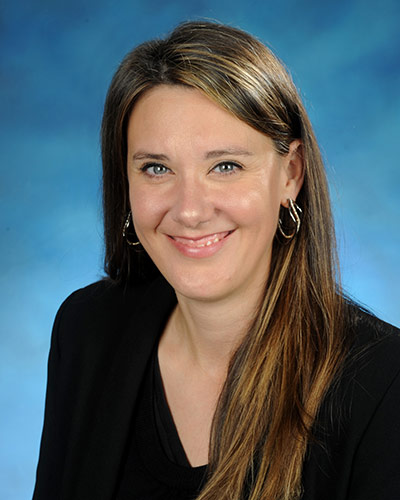
Dr. Isabel Lauren Jackson Will Be Named as the Second Greenebaum Professor in Radiation Oncology; Dr. Elizabeth Nichols and Dr. Zeljko Vujaskovic Named Department Vice Chairs
University of Maryland School of Medicine (UMSOM) Department of Radiation Oncology Chair William F. Regine, MD, FACR, FACRO, along with UMSOM Dean E. Albert Reece, MD, PhD, MBA, announced today that three prominent faculty members in the Department of Radiation Oncology will be promoted into leading department positions that recognize their outstanding academic scholarship and success.
Isabel Lauren Jackson, PhD, Associate Professor and Deputy Director of the Division of Translational Radiation Sciences (DTRS) in the Department of Radiation Oncology, will be named as the second Marlene and Stewart Greenebaum Endowed Professor in Radiation Oncology. An Endowed Professorship is the highest honor that a faculty member can receive at the UMSOM. In addition, Elizabeth Nichols, MD, Associate Professor and Clinical Director, and Zeljko Vujaskovic, MD, PhD, Professor and Director of the DTRS, have been named Vice Chairs in the Department.
Dr. Jackson to Receive UMSOM Faculty’s Highest Honor
Dr. Jackson will become the Marlene and Stewart Greenebaum Endowed Professor in Radiation Oncology, the 85th such Endowed Professorship at the UMSOM. This honor recognizes Dr. Jackson to be among the most distinguished faculty members at the School of Medicine. This endowed professorship has been made possible by the continued generosity of the Greenebaum Family Foundation.
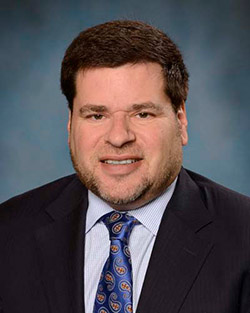 Speaking on behalf of his family, Michael Greenebaum, President of Greenebaum Enterprises and a member of the UMSOM Board of Visitors, said, “We are so pleased that Dr. Jackson is receiving the Marlene & Stewart Greenebaum Professorship in Radiation Oncology. Our family continues to support the University of Maryland School of Medicine, and this professorship will provide vital funding for Dr. Jackson’s outstanding research in the fight against cancer.”
Speaking on behalf of his family, Michael Greenebaum, President of Greenebaum Enterprises and a member of the UMSOM Board of Visitors, said, “We are so pleased that Dr. Jackson is receiving the Marlene & Stewart Greenebaum Professorship in Radiation Oncology. Our family continues to support the University of Maryland School of Medicine, and this professorship will provide vital funding for Dr. Jackson’s outstanding research in the fight against cancer.”
 A formal investiture ceremony to honor Dr. Jackson on the receipt of this recognition will be scheduled for a future date. Once invested, she will join Mohan Suntha, MD, MBA, who is also a Marlene and Stewart Greenebaum Endowed Professor of Radiation Oncology. He is also the President and CEO of the University of Maryland Medical System (UMMS). “For the past three decades, the Greenebaum family have been tremendous supporters of our collective mission,” said Dr. Suntha. “This recognition of Dr. Jackson’s track record of academic excellence is the latest way we are paying tribute to the family’s aspirations for our institution.”
A formal investiture ceremony to honor Dr. Jackson on the receipt of this recognition will be scheduled for a future date. Once invested, she will join Mohan Suntha, MD, MBA, who is also a Marlene and Stewart Greenebaum Endowed Professor of Radiation Oncology. He is also the President and CEO of the University of Maryland Medical System (UMMS). “For the past three decades, the Greenebaum family have been tremendous supporters of our collective mission,” said Dr. Suntha. “This recognition of Dr. Jackson’s track record of academic excellence is the latest way we are paying tribute to the family’s aspirations for our institution.”
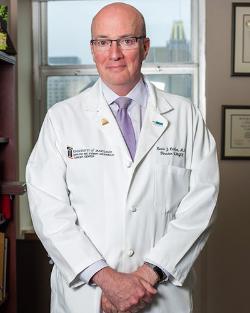 Kevin J. Cullen, MD, the Marlene and Stewart Greenebaum Distinguished Professor of Oncology at UMSOM, and director of the University of Maryland Marlene and Stewart Greenebaum Comprehensive Cancer Center (UMGCCC), added, “I congratulate Dr. Jackson on her appointment as a Greenebaum Endowed Professor. The tremendous support of the Greenebaum family is felt throughout the Cancer Center and across this campus. These professorships have done much to promote excellence in research and to elevate the status of the Department of Radiation Oncology and the UMGCCC.”
Kevin J. Cullen, MD, the Marlene and Stewart Greenebaum Distinguished Professor of Oncology at UMSOM, and director of the University of Maryland Marlene and Stewart Greenebaum Comprehensive Cancer Center (UMGCCC), added, “I congratulate Dr. Jackson on her appointment as a Greenebaum Endowed Professor. The tremendous support of the Greenebaum family is felt throughout the Cancer Center and across this campus. These professorships have done much to promote excellence in research and to elevate the status of the Department of Radiation Oncology and the UMGCCC.”
Dr. Jackson, who joined the Department of Radiation Oncology in 2012, is a dynamic and outstanding researcher and educator who has brought international attention and significant research and funding to the University of Maryland School of Medicine in the research area of radiation countermeasures. She has also proven to be a leader in laboratory development and management, working with Dr. Vujaskovic to create new models for extramural support. DTRS now has a funding portfolio of more than $45 million, including significant support from the Biomedical Advanced Research and Development Authority (BARDA), the National Institute of Allergy and Infectious Diseases (NIAID), and industry.
 “Dr. Jackson is an exceptionally talented faculty leader who is increasingly recognized as a national and international leader for her research and discovery in developing medical countermeasures against radiation sickness,” said Dean Reece, who is also Executive Vice President for Medical Affairs, UM Baltimore, and the John Z. and Akiko K. Bowers Distinguished Professor. “In recognition of the impact Dr. Jackson has as an academic leader in her field, she is most deserving of this high honor.”
“Dr. Jackson is an exceptionally talented faculty leader who is increasingly recognized as a national and international leader for her research and discovery in developing medical countermeasures against radiation sickness,” said Dean Reece, who is also Executive Vice President for Medical Affairs, UM Baltimore, and the John Z. and Akiko K. Bowers Distinguished Professor. “In recognition of the impact Dr. Jackson has as an academic leader in her field, she is most deserving of this high honor.”
As Director of the Medical Countermeasures Program in Radiation Oncology, Dr. Jackson has strategically developed the organizational structure, recruited talent, and secured funding to build the reputation of the program into the premier site for medical countermeasure research on the national and international stages. “Dr. Jackson is an internationally recognized rising superstar in the field of Radiation Biology who has brought tremendous recognition to both our department and School of Medicine,” said Dr. Regine. “She will no doubt soar to even greater heights of research success as a Marlene and Stewart Greenebaum Endowed Professor, which will ultimately improve the lives of cancer patients around the world.”
Most recently, Dr. Jackson wrote and coordinated submission of the proposal that led to her department’s designation as a NIAID/NIH Center for Medical Countermeasures against Radiation (an award of more than $12 million plus options), as well as supplemental funds from BARDA (>$7m) to continue the Division’s critical efforts towards development of medical countermeasures against acute radiation sickness. “I am both humbled and honored by this appointment,” said Dr. Jackson. “In no small measure, this recognition springs from the support and opportunities that Dean Reece and Dr. Regine have given me over the years. Looking ahead, I will employ this professorship thoughtfully and purposefully in honoring the Greenebaum family’s commitment to improve the lives of cancer patients.”
New Department Leadership Structure at Time of Rapid Growth
In making the announcements, Dr. Regine noted that the appointments come at a time of continued geographic and technologic expansion in department clinical activities and remarkable growth in radiation-focused research.
“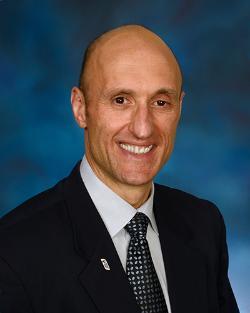 When I came to Maryland 18 years ago, the department had 23 faculty members and 113 total staff at three centers,” said Dr. Regine, who is also the Isadore and Fannie Foxman Schneider Chair in Radiation Oncology and Executive Director of the Maryland Proton Treatment Center (MPTC). “Today, we have more than 78 faculty members and 260 staff at six centers serving patients with cancer throughout the state of Maryland. As we continue to grow, our leadership structure must evolve as well. Dr. Nichols and Dr. Vujaskovic will work directly with me in their respective vice-chair roles to define new leadership positions, maintain consistently high quality care across our multiple sites, and create new opportunities for research success for our faculty, trainees and patients.”
When I came to Maryland 18 years ago, the department had 23 faculty members and 113 total staff at three centers,” said Dr. Regine, who is also the Isadore and Fannie Foxman Schneider Chair in Radiation Oncology and Executive Director of the Maryland Proton Treatment Center (MPTC). “Today, we have more than 78 faculty members and 260 staff at six centers serving patients with cancer throughout the state of Maryland. As we continue to grow, our leadership structure must evolve as well. Dr. Nichols and Dr. Vujaskovic will work directly with me in their respective vice-chair roles to define new leadership positions, maintain consistently high quality care across our multiple sites, and create new opportunities for research success for our faculty, trainees and patients.”
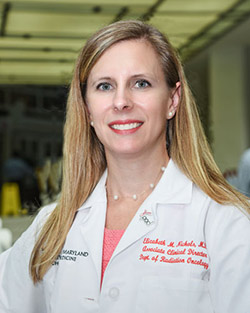 Dr. Nichols, who will become Vice Chair for Clinical Operations in the Department, is an Associate Professor in the Department of Radiation Oncology, where she serves as Medical Director, and is the department’s Clinical Director across its multiple sites. She was the Clinical Lead for implementation of the GammaPod stereotactic breast program, for which she now directs patient treatment and research, and is also the Director of the international GammaPod Research Consortium. A UMSOM graduate, Dr. Nichols has been named one of the “25 Women to Watch” by The Baltimore Sun (2019) and as “Physician of the Year” (2020) by the Daily Record.
Dr. Nichols, who will become Vice Chair for Clinical Operations in the Department, is an Associate Professor in the Department of Radiation Oncology, where she serves as Medical Director, and is the department’s Clinical Director across its multiple sites. She was the Clinical Lead for implementation of the GammaPod stereotactic breast program, for which she now directs patient treatment and research, and is also the Director of the international GammaPod Research Consortium. A UMSOM graduate, Dr. Nichols has been named one of the “25 Women to Watch” by The Baltimore Sun (2019) and as “Physician of the Year” (2020) by the Daily Record.
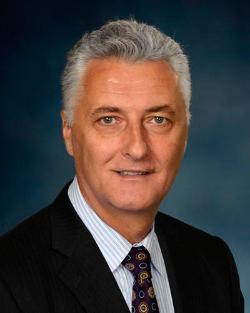 Dr. Vujaskovic, who will become Vice Chair for Research in the Department, is an internationally recognized NIH-funded radiation oncologist/biologist whose more than 30-year career has been defined by transdisciplinary research that bridges the gap between basic science and the clinic research to ultimately improve outcomes and long-term quality of life among cancer patients. Since coming to the UMSOM in 2012, his division’s research has been continuously supported by the National Institutes of Health, the Biomedical Advanced Research and Development Authority (BARDA), and other federal agencies, as well as industry sponsors. Most recently, he received a five-year, $12,239,361 U19 award from the National Institute of Allergy and Infectious Diseases (NIAID) to establish an NIAID Center for Medical Countermeasures Against Radiation at the UMSOM.
Dr. Vujaskovic, who will become Vice Chair for Research in the Department, is an internationally recognized NIH-funded radiation oncologist/biologist whose more than 30-year career has been defined by transdisciplinary research that bridges the gap between basic science and the clinic research to ultimately improve outcomes and long-term quality of life among cancer patients. Since coming to the UMSOM in 2012, his division’s research has been continuously supported by the National Institutes of Health, the Biomedical Advanced Research and Development Authority (BARDA), and other federal agencies, as well as industry sponsors. Most recently, he received a five-year, $12,239,361 U19 award from the National Institute of Allergy and Infectious Diseases (NIAID) to establish an NIAID Center for Medical Countermeasures Against Radiation at the UMSOM.
On July 1, Dr. Regine assumed the position of President of the Medical Staff for the University of Maryland Medical Center (UMMC), where he serves as a member and chair of the UMMC Medical Executive Committee, and as an ex officio member of all other Medical Staff committees.
“With increasing responsibilities beyond the department, I am looking forward to sharing day-to-day and long-term management and strategic planning with Dr. Nichols and Dr. Vujaskovic,” said Dr. Regine. “They have already established extraordinary track records of leadership and accomplishment in our department and at UMSOM. Together, we will work to meet the challenges and optimize the rewards that come with fulfilling our missions of patient care, research, education, and community outreach in a rapidly changing environment.”
About the University of Maryland School of Medicine
Now in its third century, the University of Maryland School of Medicine was chartered in 1807 as the first public medical school in the United States. It continues today as one of the fastest growing, top-tier biomedical research enterprises in the world -- with nearly 50 academic departments, centers, institutes, and programs; and a faculty of more than 3,000 physicians, scientists, and allied health professionals, including members of the National Academy of Medicine and the National Academy of Sciences, and a distinguished two-time winner of the Albert E. Lasker Award in Medical Research. With an operating budget of more than $1.2 billion, the School of Medicine works closely in partnership with the University of Maryland Medical Center and Medical System to provide research-intensive, academic and clinically based care for nearly 2 million patients each year. The School of Medicine has more than $563 million in extramural funding, with most of its academic departments highly ranked among all medical schools in the nation in research funding. As one of the seven professional schools that make up the University of Maryland, Baltimore campus, the School of Medicine has a total population of nearly 9,000 faculty and staff, including 2,500 students, trainees, residents, and fellows. The combined School of Medicine and Medical System (“University of Maryland Medicine”) has an annual budget of nearly $6 billion and an economic impact more than $15 billion on the state and local community. The School of Medicine, which ranks as the 8th highest among public medical schools in research productivity, is an innovator in translational medicine, with 600 active patents and 24 start-up companies. The School of Medicine works locally, nationally, and globally, with research and treatment facilities in 36 countries around the world. Visit medschool.umaryland.edu
Contact
Office of Public Affairs
655 West Baltimore Street
Bressler Research Building 14-002
Baltimore, Maryland 21201-1559
Contact Media Relations
(410) 706-5260
Related stories
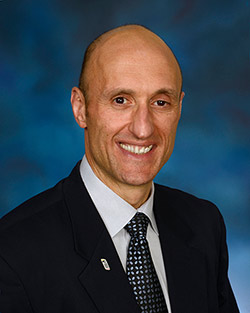
Thursday, March 09, 2023
Leading Physician-Scientist Dr. William F. Regine Named Senior Associate Dean for Clinical Affairs at UM School of Medicine and President of UM Faculty Physicians, Inc.
University of Maryland School of Medicine (UMSOM) Dean Mark T. Gladwin, MD announced today that William F. Regine, MD, FACR, FASTRO, FACRO has been appointed to the executive role of Senior Associate Dean for Clinical Affairs at the University of Maryland School of Medicine (SOM), effective immediately.

Thursday, October 14, 2021
Isabel L. Jackson, PhD, Named Director of Division of Translational Radiation Sciences (DTRS) in UMSOM’s Department of Radiation Oncology
William F. Regine, MD, FACR, FACRO, Professor and Isadore & Fannie Schneider Foxman Chair of UMSOM’s Department of Radiation Oncology, has announced the promotion of Isabel Lauren Jackson, PhD, to the position of Director of the department’s Division of Translational Radiation Sciences (DTRS). Dr. Jackson, the Marlene & Stewart Greenebaum Professor in Radiation Oncology, previously served as that division’s Deputy Director and Director of the Medical Countermeasure Program (MCP).
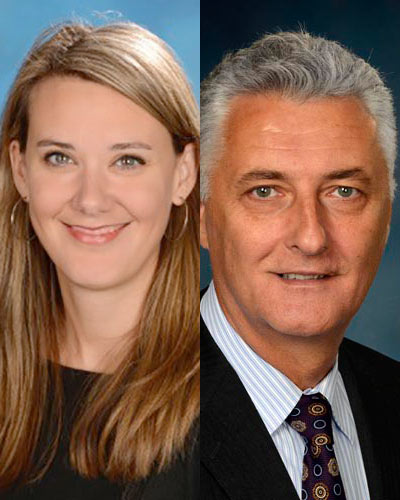
Monday, September 24, 2018
University of Maryland School of Medicine Researchers to Present Original Research at Key Radiation Conference
The University of Maryland School of Medicine (UMSOM) announced that the Division of Translational Radiation Science (DTRS) will participate in the annual meeting of the Radiation Research Society (RRS) on September 23-26, 2018, in Chicago.
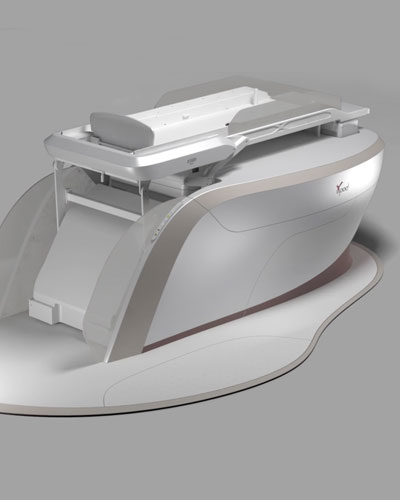
Friday, December 22, 2017
First Stereotactic Radiation Therapy System Designed To Treat Early Stage Breast Cancer Receives FDA Clearance
The GammaPod ™ – a first-of-its kind stereotactic radiotherapy system to treat early stage breast cancer – has received 510(k) clearance from the U.S. Food and Drug Administration (FDA), paving the way for the manufacturer to bring the system to market for the treatment of breast cancer patients.

Thursday, October 27, 2016
Dr. William F. Regine is Awarded 2016 Entrepreneur of the Year From the University of Maryland, Baltimore
William F. Regine, MD, FACR, FACRO, the Isadore & Fannie Schneider Foxman Endowed Chair and Professor in Radiation Oncology at the University of Maryland School of Medicine (UM SOM) and Executive Director of the Maryland Proton Treatment Center (MPTC) has been awarded the 2016 Entrepreneur of the Year from the University of Maryland, Baltimore (UMB).
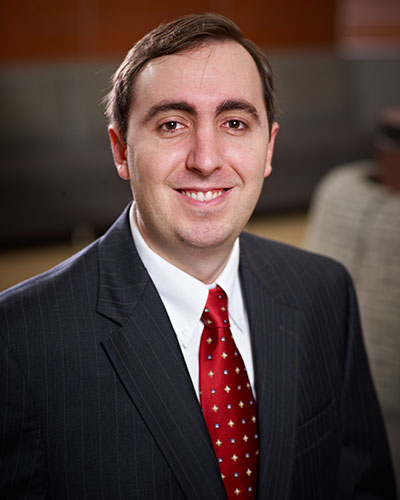
Thursday, July 14, 2016
Dr. Charles B. Simone, II Appointed Medical Director of the Maryland Proton Treatment Center
William F. Regine, MD, FACR, FACRO, the Isadore & Fannie Foxman Schneider Endowed Chairman and Professor of Radiation Oncology at the University of Maryland School of Medicine (UM SOM) and the Executive Director of the Maryland Proton Treatment Center (MPTC), along with UM SOM Dean E. Albert Reece, MD, PhD, MBA, announced today that Charles B. Simone, II, MD, a nationally-recognized expert in proton therapy at the University of Pennsylvania, has been named the new Medical Director of the MPTC. Dr. Simone will also be appointed Associate Professor in the UM SOM Department of Radiation Oncology and will begin in his new position in November 2016.

Friday, January 15, 2016
UM SOM to Participate in Expanded Medical Countermeasures Research Project
University of Maryland School of Medicine (UM SOM) Department of Radiation Oncology Chair and Professor William F. Regine, MD, FACR, FACRO, and UM SOM Dean E. Albert Reece, MD, PhD, MBA, announced today that researchers at the UM SOM have been selected as key contractors by the Biomedical Advanced Research and Development Authority (BARDA), for its Radiation Nuclear Animal Model Development program. BARDA is part of the Office of the Secretary for Preparedness and Response in the U.S. Department of Health and Human Services (DHHS).
